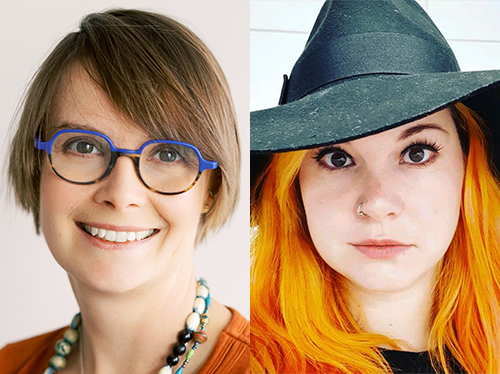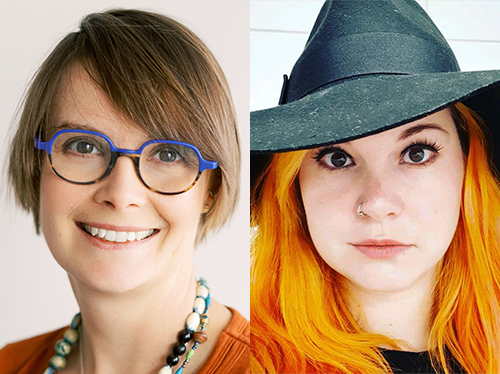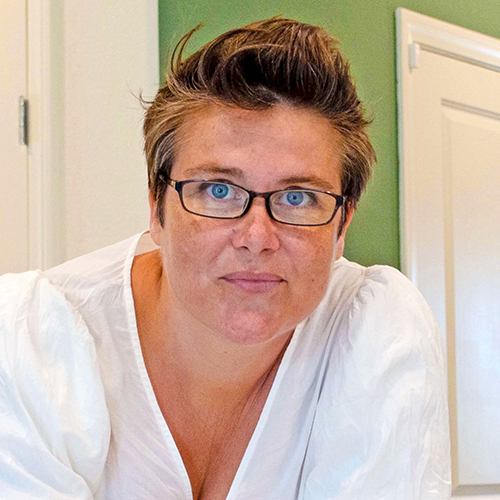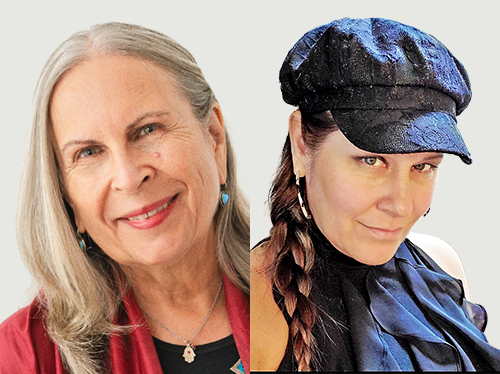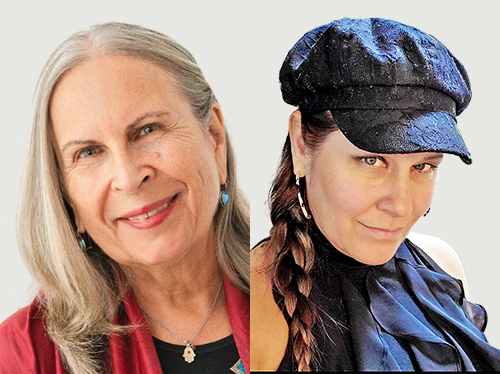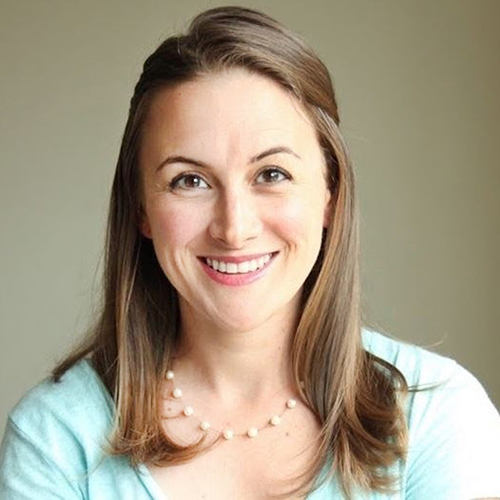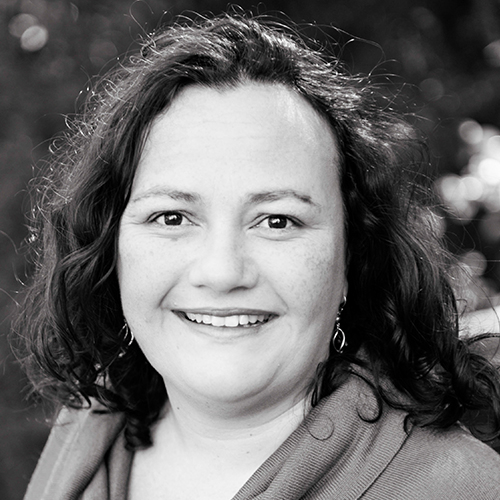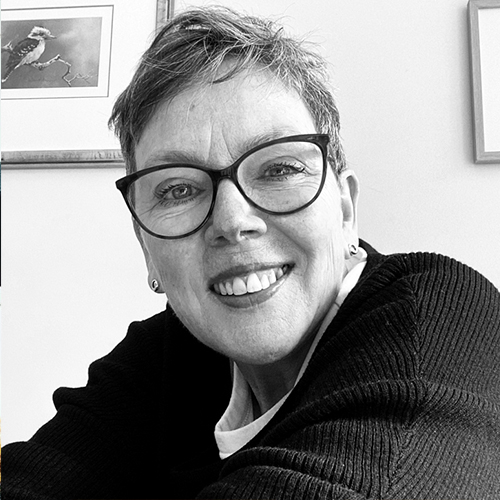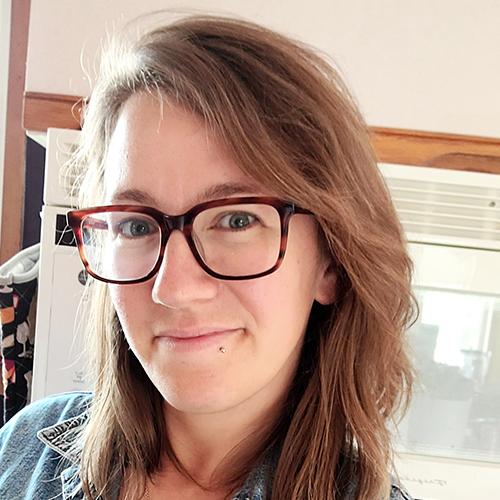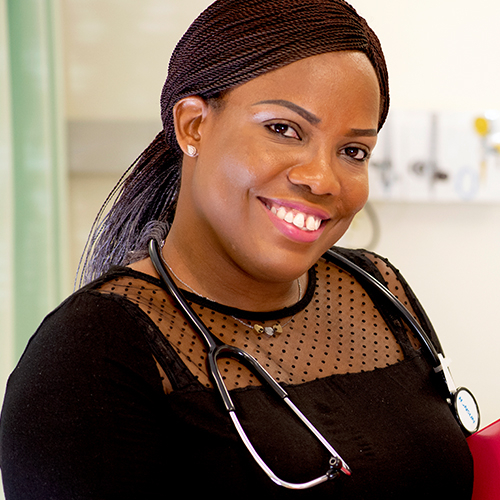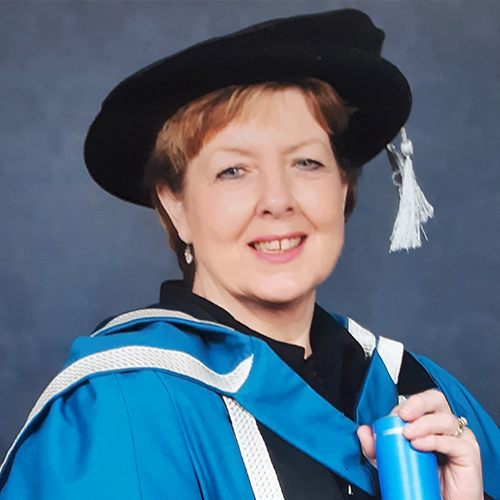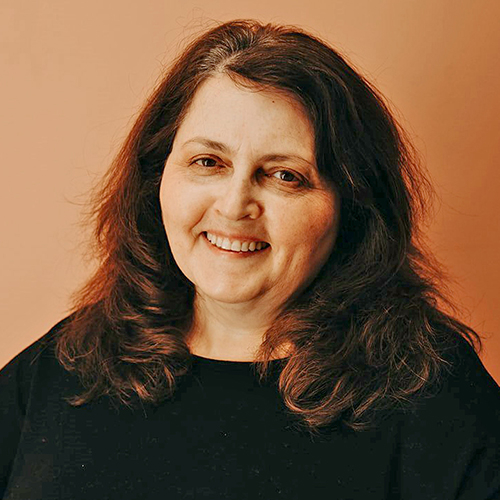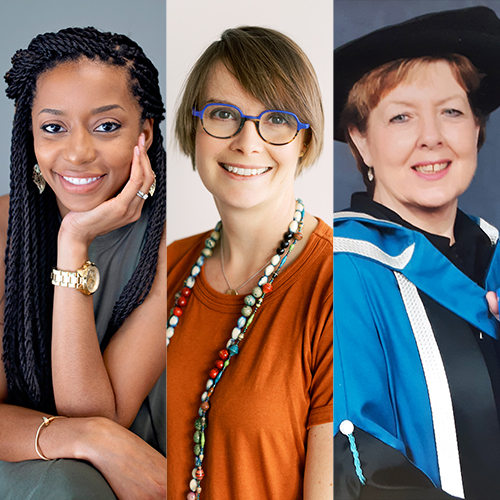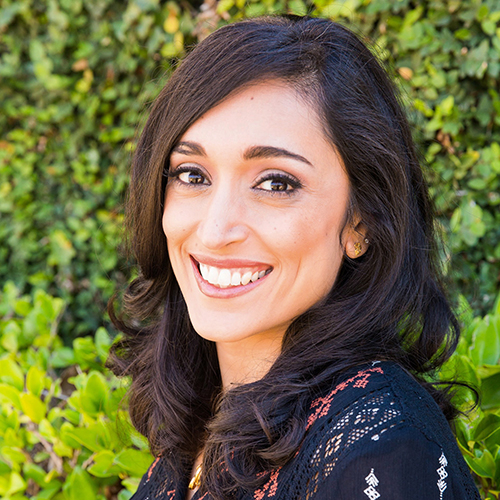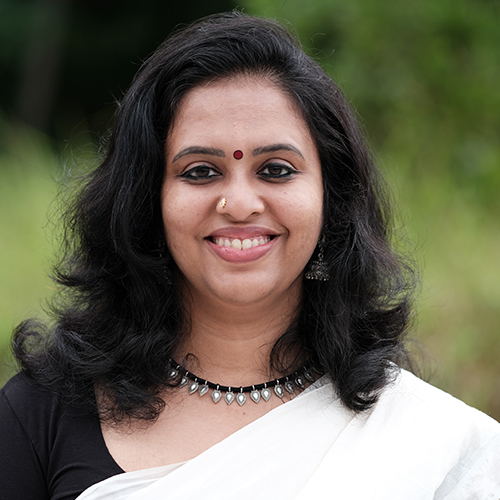 2022 Speakers & Topics
2022 Speakers & Topics
Alixandra Bacon is a Registered Midwife and settler living and working in Vancouver, BC on the traditional and unceded territories of the Musqueam, Squamish, Tsleil-waututh and Tsawwassen nations. Alixandra is President of the Canadian Association of Midwives, Past President of the Midwives Association of BC, and clinical faculty at the University of British Columbia, Faculty of Medicine. Alixandra is passionate about creating equitable access to excellent sexual, reproductive and newborn midwifery services for everyone. Alixandra is the recipient of the UBC Alumni Builder Award.
Dusty Chipura is a Master Certified and AACC accredited ADHD Coach, specializing in supporting pregnant people with ADHD. She is passionate about creating equitable access to ADHD support services, especially for people from marginalized communities, and has created the first pregnancy-specific resource for people with ADHD in conjunction with Alix Bacon, the ADHD and Pregnancy Journal. Dusty offers private and group coaching, runs various online courses, and curates a virtual ADHD support space called the ADHD Studio. You can find her salty op eds on Twitter and Tiktok, @dustychipura.
ADHD impacts 1/30 females, and stimulants are among the most commonly prescribed medications during pregnancy, with an estimated 1% exposure prevalence. Research on ADHD and pregnancy is emerging and imperfect but shows that there are risks to the birther and fetus. Midwives need to be aware of the impacts of ADHD on pregnancy, and the risks and benefits of medication during pregnancy and lactation. Midwives, particularly those working in the continuity of care model, are well positioned to offer education and referrals regarding non-pharmaceutical supports and strategies for managing ADHD in pregnancy.
Angel Montfort, Psy.D., PMH-C is a licensed clinical psychologist, mother of four, and the founder of the Center for Maternal Mental Health, a therapy practice dedicated to serving women throughout all stages of motherhood. She has always gravitated toward treating women and became passionate about perinatal mental health while working in a Women's Clinic within a hospital setting. At first it was a way to meet the needs of her patients and it quickly led to an understanding of her own postpartum experiences, which deepened her connection to this work.
In her practice, Dr. Montfort addresses concerns such as postpartum depression, postpartum anxiety, birth trauma, perinatal loss, infertility, and adjustment to motherhood.
Dr. Montfort shares educational information on her Instagram account (@drangelmontfort) and her website (www.cfmmh.com) in an effort to validate and uplift moms who are struggling through a time that is expected to be the most joyous. Her expertise in perinatal mental health has been featured in a number of media outlets including Forbes, Healthline, and ScaryMommy. She believes that if we make space for both the highs and lows of motherhood, we set new moms up for a more balanced experience.
Perinatal Anxiety is included under the umbrella of Perinatal Mood & Anxiety Disorders which are experienced by approximately 1 in 5 mothers. This particular type of anxiety is characterized by intense uncontrollable worry, panic attacks, insomnia, racing thoughts and a general fear that something bad will happen (typically to one’s infant). Although worrying about one’s pregnancy, delivery, and baby is very common; these worries become concerning when they are all-consuming and start to interfere with one’s ability to function. This presentation will focus on ways to identify perinatal anxiety in your patients, the importance of screening throughout pregnancy and postpartum, strategies to share with your patients for managing their anxiety such as relaxation exercises, support groups, education, physical movement, mindfulness, etc., and resources to provide to patients in need of mental health treatment.
Augustine is an internationally recognized midwifery educator, experienced business executive, and veteran midwife with a heart focused on the underserved, marginalized, and under-resourced. She respects the importance of being empowered and undisturbed during labor, and balances this attention to the sacred with 20+ years experience attending births in hospitals, birth centers, and homes in rural, urban and suburban environments in the US and abroad. Augustine’s focus is finely attuned to the process of letting go and opening to the unknown in labor and in life. Additionally, Augustine has a master’s degree from Bastyr University in Seattle, WA where she majored in Maternal/Child Health Systems.
Her life's mission is to mainstream midwifery and deconstruct the culture of fear and misinformation that surrounds the maternity world globally. To that end, Augustine 'midwife's the midwife' through her many education programs, consulting services, product development, podcasts and video production, business site visits, and with private coaching services for midwives, students, maternity practice owners, & birth center administrators through her consulting firm, The Midwifery Wisdom Collective. It is her profound honor to illuminate the sacred path to joyful and sustainable midwifery practice. She lives and works in India.
The rapid development and attempts at standardization and professionalization of the modern version of midwifery in the U.S. has created debate and tension about what, exactly, should be contained within the internationally recommended 3-year midwife training. Competencies in clinical judgment, intuition, multi-tasking, delegating, and other higher-order professional skills, hallmarks of modern midwifery, take longer to develop than just technical excellence. Midwives in my parts of the world are targeted during and after providing care by the dominate for-profit medical model. However, despite all this, charting defensively is not an integral part of midwifery training across the globe, most charting is not standardized therefore putting midwives at risk. Thus, increasing malpractice costs, and decreasing access to midwives is the result. Not having a context for charting, makes midwives vulnerable to litigation. Not good for the midwife, not good for the community. This presentation about defensive charting aims to bridge the gap by starting a conversation around honing critical thinking pathways, sharpening charting skills and debunking charting myths, optimizing charting habits, shared decision-making and tips to protect yourself during and after poor outcomes. Access the tools to close existing gaps in charting, acknowledge cultural incompetency, political reality, and design in-office systems of strength and confidence for the future.
Barbara Harper is an internationally recognized expert on waterbirth and gentle birth, a published author of books and journal articles, who founded the non-profit organization, Waterbirth International, in 1988, with one goal in mind – to ensure that waterbirth is an “available option” for all women. During the past five decades Barbara has worked as an obstetric, pediatric, and critical care nurse, midwife, midwifery instructor, childbirth educator, and Blissborn Hypnosis teacher/trainer. She teaches unique seminars within hospitals, nursing schools, midwifery and medical schools and community groups worldwide. Her bestselling book, ‘Gentle Birth Choices,’ has been translated into 9 languages, including Chinese. Her latest collaborative book project was published in May 2021, called Bringing Birth Home. She is also working on a new book project called Gentle Birth Wisdom. She lives in Boca Raton, Florida teaching Blissborn Classes and attending occasional births.
Charlotte Sanchez is a childbirth educator and midwife. Supporting women and their families in the natural home birth process consecutively now for 30 years. As an Atlanta midwife, she believes in a woman’s right to determine her own choice of care during pregnancy and birth. Charlotte received her training through an extensive internship before becoming a Certified Professional Midwife (CPM), a program developed by the North American Registry of Midwives. She gained vast experience co-directed a free standing family birthing center in the state of Michigan. As well as founding Pregnancy Beat a national pregnancy website featuring expert articles, videos, birth stories and a community for mothers. It was after attending home births throughout the United States and Canada in places such as Windsor, Michigan, Ohio, Kentucky, California and Georgia that she now resides in Atlanta. Recently after completing 10 years serving as Vice President of the Georgia Midwife Association Charlotte decided to move forward to pursue her passion with teaching. She specializes in water birth, vbac, twins and breech birth. She has trained highly motivated students who have became practicing Midwives. Personally Charlotte is a mother of four children whom three were born gently into the hands of midwives, with the last a home water birth 25 years ago.
A steady decline in the rate of vaginal term breech birth over the past three decades has led to a resurgence of vaginal breech birth in many parts of the world. The dedication of researchers, teachers, providers, and non-profit organizations has fostered on- going studies, published research, and provided hands-on training. Within that dedicated group of professionals there is a controversy surrounding using water for second stage. There are strong opinions on either side. Dr. Herman Ponette, the head obstetrician at the H. Surreys Hospital in Ostend, Belgium, was the first obstetrician to detail his experience using water immersion for term breech vaginal birth in the early 1980s. Using water as a comfort measure for early labor is not currently in question. Most experienced breech providers have limited experience using water for the actual birth.
This session will examine the pros and cons of facilitating breech birth in water from a provider perspective. A brief discussion of fetal reflexes and newborn transitional physiology will be included as well as a summary of the current research. Using photos, video of breech waterbirths, and video demonstration on models of hand positions and techniques to assist with a breech birth will introduce the participant to this topic and create an interest for further research and investigation.
Bonnie Urquhart Gruenberg, CNM, MSN, CRNP, is the award-winning author of Birth Emergency Skills Training; Manual for Out-of-Hospital Midwives, and co-developer of the workshop by the same name. In 2023, her long-awaited seminal work, Birth Emergencies for Community Midwives, will come to press. She has caught more than 2,100 babies to date in the home, in a free-standing birth center, and in the hospital. She currently works for Wellspan Health in Lancaster County, PA. Bonnie has written and illustrated 12 books on topics ranging from midwifery and maternity care to wild horse management. She enjoys painting, photography, and hobby farming.
A seasoned midwife sometimes encounters unusual situations in clinical practice. In these unique case studies, we will consider the challenges of paravaginal birth, uterus didelphys, cervical myoma, and acute urinary retention in the second trimester.
Cristen Pascucci is an advocate for human rights in childbirth. She is the founder of Birth Monopoly and working on a documentary film exposing the epidemic of obstetric violence and the state-sanctioned suppression of midwifery in the U.S. With a background in public affairs, Cristen has led multiple consumer-based advocacy campaigns to get birth trauma and institutional mistreatment in maternity care into the media. Today she teaches birth and healthcare workers about their patients' human rights.
In this session, we'll explore a deeper understanding of what obstetric violence is and the many ways it manifests to undermine and harm birthing people—as well as puts their caregivers and support teams in compromising positions. We'll discuss how birth professionals can avoid committing or contributing to obstetric violence themselves and how they can help make trauma informed care--including self-healing--the industry standard.
Debby Gould is a ‘BirthCare’ consultant providing education, support and counsel to women, partners, families and health professionals. Her goal is to provide transformational care to support education, empowerment and healing. She is an author of the book, ‘How to Heal a Bad Birth – Making Sense, Making Peace & Moving On’ and Co- Director of Birthtalk.org. Originally, a registered nurse she further trained and worked as a midwife, and is now a birth; educator, worker and counsellor, international author, speaker and mother of two children. For over twenty years she has supported women and men in the journey to healing after a traumatic birth, enabling women to make sense of their experience and its impact, offering hope for healing, and providing support and tools to process and make peace with what happened. She has shared in receiving the honour of a Lord Mayor’s Australia Day Community Achievement award for this work. Debby has been Birthtalk’s primary educator and facilitator of Healing From Birth meetings. She has presented for the ACM, Hypnobirthing Australia, Capers, Homebirth Australia, Australian Breastfeeding Association and various other maternal health and midwifery conferences. She guest lectures to Bachelor of Midwifery students at several Universities, and gives presentations for The Australian Doula College, Friends of the Birth Centre, Red Tent festival and other community groups. She also provides professional development for hospital midwives and doulas on the topic of Birth Trauma and how to support women to heal and have better births. She has co-written articles for Birthtalk’s blog “The Truth About Traumatic Birth” and has appeared in the media including radio, newspaper, birth and parenting magazines and podcasts and in the recent birth documentary ‘Birth Time’ as an experienced health professional’s voice to the issue of the importance of birth and traumatic birth.
Traditionally, an outcome focus has often been considered as the measure of ‘success’ in birth. When it comes to consent, that outcome tends to be ‘a live healthy baby’ and ‘the authority to do what is deemed desirable or necessary’. Considering an epidemic of birth trauma and the associations with the #metoo movement in birth, it is evident that this is not success for women and families. It is a narrow and damaging view that needs to be explored, understood, and changes made. The process of consent is valued, tangible, ethically and legally sanctioned, and provides key moments in care, to incorporate such change. A paradigm shift around consent is vital to address the experiences of assault and trauma in perinatal care. Conversation with families about consent is also a potential starting point to consciously address and intervene in damaging processes, and improve experiences, that could then be normalized and ripple out across all care delivery. Practical measures around consent and care processes will be explored with the aim to offer an intervention, when used consistently, to break the human mode of transmission of birth trauma, metaphorically, much like handwashing in our current pandemic.
Fiona has been a midwife for 32 years. She is also a registered nurse and maternal & child health nurse, a birth educator and bodyworker. She has worked in Melbourne public and private birthing hospitals and has supported many families with the birth of their babies at home and in hospital. Interwoven throughout her midwifery practice has been an involvement in midwifery education and the teaching of Birthwork Workshops. The focus of all birth related teaching is on the dynamic pelvis and how to make space for the baby. Fiona is also a Spinning Babies® Approved Trainer. When not teaching workshops, Fiona offers bodywork sessions to women in a 1:1 capacity, with particular emphasis on internal pelvic release work. She has been instrumental in establishing the Internal Pelvic Release Work Mentoring Program in Australia. Fiona’s drive to teach is fuelled by a desire to see childbearing women hold birth knowledge, learn to honour their pelvic treasures and work with their innate power and in so doing, eradicate birth trauma. Fiona lives in Melbourne, Australia.
So much emphasis has been placed on the bones of the pelvis – the space they can create for birth and the problems they cause. Cephalo Pelvic Disproportion (CPD) seems to be a term all too readily used to justify yet another woman having her baby born by caesarean section. It seems strange that nature has created so many mother/baby mismatches!
Commonly, the pelvic soft tissues don't come into consideration when a mother’s pelvis is deemed too small for her baby’s head. And yet bones don’t move on their own. Bones provide structure and form and bony movements are driven by soft connective tissues. If the connective tissues are holding tension of known or unknown origin, it stands to reason that when that tension is addressed and released, the connective tissues may ‘sigh’ and greater movement of the bony frame could occur.
The presentation will explore what connective tissues influence pelvic space and movement, why connective tissues can hold tension and creative considerations to work with them.
Heather is a Métis Midwife from Winnipeg, Manitoba. She studied midwifery at Laurentian University, focusing on rural and remote practice. Heather practiced midwifery at the Seventh Generation Midwives Toronto for two years before moving to Hay River, Northwest Territories to establish a Midwife practice and help return birthing services to the community. Heather is now living and working in Yellowknife, Northwest Territories and is president of the Midwives Association of the Northwest Territories and is a Core Leader of the National Aboriginal Council of Midwives.
Systemic racism and bias of individuals in healthcare has a significant impact on the health and well-being of clients/patients, care providers, and communities.
The Canadian midwifery model of care is well-suited to mitigate some of the disparities caused by bias and racism in sexual and reproductive health care. It is also not impossible for well-intentioned midwives to contribute to, and uphold the systems that discriminate.
Drawing from her lived experience as a Métis midwife, Heather will share anecdotes and stories that illustrate the stark differences between communities where there is no access to midwifery care, compared to a community with access. She will explore ways that systemic racism is manifest within sexual and reproductive health care in Canada, and the impacts on patients/clients, healthcare providers, and communities.
Strategies to mitigate these negative impacts must be led by the communities that experience them and supported by others who work and live with these people. A strengths based, community-led approach must be taken. This requires taking a deep look within ourselves and the systems that we work in to understand the breadth of the problem that we face.
Participants will leave the presentation with concrete steps they can take to help combat racism and work towards dismantling systems that contribute to ongoing oppression.
Isabella is a Ph.D. candidate in the College of Nursing and Midwifery at Charles Darwin University in Australia. She has over 12 years’ experience as a midwife and has also been an educator and researcher in her home country Ghana. She holds a bachelor’s degree in nursing and a master’s in nursing from the University of Cape Coast in Ghana. Isabella is a foundation fellow of the Ghana College of Nurses and Midwives and a member of the Ghana Registered Midwives Association. Isabella is currently undertaking her PhD focusing on improving midwifery care for women who develop preeclampsia in Ghana. She loves to engage in advocacy and is currently a member of Action on Preeclampsia Ghana (APEC-GH), the sole advocacy group concerned with preeclampsia in Ghana. She is a member of the APEC newsletter committee and occasionally facilitates their online webinars for pregnant women, their families, and midwives.
Pre-eclampsia, a complex hypertensive disorder of pregnancy is the second leading cause of global maternal mortality affecting about 8% of pregnancies. Although there are more positive outcomes for women who develop pre-eclampsia in Europe, North America and Australia, there are far more devastating consequences in Low- and Middle-Income Countries (LMIC’s). To improve the outcomes and ultimately achieve the Sustainable Development Goals (SDG’s), effective care is recommended for all women who develop pre-eclampsia, and this should be based on high quality guidelines to facilitate prompt identification and management. As front-line maternity service providers, midwives are instrumental in reducing maternal and neonatal deaths from all complications including pre-eclampsia. Across the continuum of care, midwives have the potential to save over 30% of women who develop pre-eclampsia and eclampsia. Depending on the setting, midwives may assess, diagnose, initiate, and coordinate care for women who develop pre-eclampsia within regulated practice frameworks and in agreement with international practice standards. This presentation will highlight the burden of pre-eclampsia and discuss the current care recommendations during the antenatal, intrapartum, and postpartum periods. Practical application strategies in LMIC’s will be emphasized in the context of WHO’s quality care framework.
Dr. Kendall-Tackett is a health psychologist and International Board Certified Lactation Consultant, and the Owner and Editor-in-Chief of Praeclarus Press, a small press specializing in women's health. Dr. Kendall-Tackett is Editor-in-Chief of the journal, Psychological Trauma and was Founding Editor-in-Chief of Clinical Lactation, a position she held for 11 years. She is Fellow of the American Psychological Association in Health and Trauma Psychology, Past President of the APA Division of Trauma Psychology, and a member of APA’s Publications and Communications Board.
Working in perinatal care can be deeply rewarding. It can also lead to job-related burnout, secondary traumatic stress, and moral injury. Secondary traumatic stress (compassion fatigue), or moral injury, can occur when witnessing traumatic events in the workplace. This can occur when witnessing infant death or traumatic births, or when there is too much work, or work that doesn’t seem to make a difference, and little institutional support. Unfortunately, this is remarkably common among caregivers for perinatal women. Burnout, compassion fatigue, and moral injury can lead to physical and mental health sequelae for care providers and have a negative effect on the care they provider. Self-care is essential for being able to provide care to others. In this presentation, participants will learn about the causes and consequences of burnout, compassion fatigue, and moral injury. Fortunately, there is hope for recovery. Participants will learn some specific strategies for integrating self-care into their care for others.
First and foremost Dr. Kathryn Gutteridge is a mother, wife and latterly grandmother, her personal life has always largely informed her practice and she is always careful to remember that the women she meets are also like her in that they belong to a family.
Dr. Gutteridge a freelance consultant midwife one of the first in the UK and formerly employed at 2 very large and diverse maternity units. Her career started in the 1970's in nursing however midwifery was always her ambition and particularly the nurturance of midwifery led care.
Dr. Gutteridge is a practicing psychotherapist interested in the emotional impact of childbirth; in part due to her own mothering experiences and research. She has worked closely with women to understand this phenomenon and researched emotional transition to motherhood.
Raising awareness for maternal mental health and particularly women surviving sexual abuse, Dr. Gutteridge co-founded Sanctum Midwives campaigning on maternity care and sexual abuse. She has worked for many years raising awareness around the issues of maternal mental health and supporting both women and all those who work in maternity care situations. She believes positive mental health is the cornerstone to mothering and self fulfilment.
Dr. Gutteridge has published widely in peer review journals but also in many books. Her latest publication is 'Understanding Anxiety, Worry and Fear in Childbearing Women' which she edited and wrote 4 chapters. She is currently writing on the issues of child and adult female sexual abuse and its implications.
Dr. Gutteridge cares very deeply about women and their babies that they may come through their pregnancy and birth unharmed. She will continue to do this for the sake of midwives everywhere.
2017 -2021 Dr Gutteridge was elected to the position of Royal College of Midwives President. An ambassadorial role that goes back to the formation of the RCM.
In 2016 National Health Service (NHS) England produced a report that is to be ground breaking in its ambitions and is part of the NHS Long Term Plan. The review team spent a whole year meeting with families, midwives, obstetricians and voluntary sector groups. This review team was led by Baroness Cumberledge, she understood the issues and was able to steer this work to its most important conclusion – personalised care centred around the woman and her family gives the best physical and psychological outcomes. The vision for maternity services across England is for them to become safer, more personalised, kinder, professional and more family friendly; where everywoman has access to information to enable her to make decisions about her care; and where she and her baby can access support that is centred around their individual needs and circumstances. If a small group of midwives managed the care of the woman, near to her home and she has access at all times to the information, choices about her birthing options then the benefits were huge. A reduction in premature birth, reduction in stillbirth, less risk of perinatal illness and of course reduction in maternal deaths. This is the reality for maternity services and now we are partway through implementation. I will present some of the realities for this model and the benefits for women and their families.
Maya Bolman was born and raised in Minsk, Belarus. She was certified as IBCLC in 2001 and currently works as a lactation consultant at Senders Pediatrics and Breastfeeding Medicine of Northeast Ohio.
Maya is well known internationally for her work promoting hand expression and breast massage to health professionals and parents. She recognizes that teaching these basic tools helps empower them to work through breastfeeding challenges including engorgement, plugged ducts, separation from the infant, and milk supply concerns.
She has worked with Dr. Ann Witt to create an instructional video “The Basics of Breast Massage and Hand Expression” and conducts research on the effectiveness of Therapeutic Breast Massage in Lactation (TBML) both in the office and as a treatment at home for mothers.
Breast pain is a major cause of weaning. Milk stasis, which occurs in engorgement, mastitis and plugged ducts, is a common cause of pain that may lead to the temporary or permanent cessation of breastfeeding. Therapeutic Breast Massage in Lactation (TBML) is one clinical tool to help resolve breast pain quickly. Therapeutic Breast Massage in Lactation (TBML) provides a simple, readily accessible method that can be easily taught to parents and health professionals. Empowering parents to resolve complications at home may be a critical skill for extending breastfeeding duration.
Angel Montfort, Psy.D., PMH-C is a licensed clinical psychologist, mother of four, and the founder of the Center for Maternal Mental Health, a therapy practice dedicated to serving women throughout all stages of motherhood. She has always gravitated toward treating women and became passionate about perinatal mental health while working in a Women's Clinic within a hospital setting. At first it was a way to meet the needs of her patients and it quickly led to an understanding of her own postpartum experiences, which deepened her connection to this work.
In her practice, Dr. Montfort addresses concerns such as postpartum depression, postpartum anxiety, birth trauma, perinatal loss, infertility, and adjustment to motherhood.
Dr. Montfort shares educational information on her Instagram account (@drangelmontfort) and her website (www.cfmmh.com) in an effort to validate and uplift moms who are struggling through a time that is expected to be the most joyous. Her expertise in perinatal mental health has been featured in a number of media outlets including Forbes, Healthline, and ScaryMommy. She believes that if we make space for both the highs and lows of motherhood, we set new moms up for a more balanced experience.
Alixandra Bacon is a Registered Midwife and settler living and working in Vancouver, BC on the traditional and unceded territories of the Musqueam, Squamish, Tsleil-waututh and Tsawwassen nations. Alixandra is President of the Canadian Association of Midwives, Past President of the Midwives Association of BC, and clinical faculty at the University of British Columbia, Faculty of Medicine. Alixandra is passionate about creating equitable access to excellent sexual, reproductive and newborn midwifery services for everyone. Alixandra is the recipient of the UBC Alumni Builder Award.
Dr Kathryn Gutteridge - First and foremost I am a mother, wife and latterly grandmother, my personal life has always largely informed my practice and I am always careful to remember that the women I meet are also like me in that they belong to a family.
I am a freelance consultant midwife one of the first in the UK and formerly employed at 2 very large and diverse maternity units. My career started in the 1970’s in nursing however midwifery was always my ambition and particularly the nurturance of midwifery led care.
I am a practicing psychotherapist interested in the emotional impact of childbirth; in part due to my own mothering experiences and research. I have worked closely with women to understand this phenomenon and researched emotional transition to motherhood.
Raising awareness for maternal mental health and particularly women surviving sexual abuse, I co-founded Sanctum Midwives campaigning on maternity care and sexual abuse. I have worked for many years raising awareness around the issues of maternal mental health and supporting both women and all those who work in maternity care situations. I believe positive mental health is the cornerstone to mothering and self fulfilment.
I have published widely in peer review journals but also in many books. My latest publication is ‘Understanding Anxiety, Worry and Fear in Childbearing Women’ which I edited and wrote 4 chapters. I am currently writing on the issues of child and adult female sexual abuse and its implications.
I care very deeply about women and their babies that they may come through their pregnancy and birth unharmed. I will continue to do this for the sake of midwives everywhere.
There is a growing awareness of the importance of perinatal mental health, and with the COVID-19 global pandemic, the need for screening is more important than ever. There is a knowledge and practice gap however when it comes to the practicalities of caring for mental health. This panel brings together midwives from different parts of the world and different practice settings to discuss what mental health care looks like in clinical practice and the importance of building mental health assessment and management into the standard structure of care provided to all birthing families.
Parijat Deshpande is the leading integrative high-risk pregnancy specialist, somatic stress & trauma professional and speaker and author who guides women to improve their pregnancy complications so they can reduce their risk of preterm birth. Her unique neurobiological approach has served hundreds of women to manage pregnancy complications and reclaim a safety and trust in their bodies that they thought was eroded forever. Parijat is the author of bestselling book Pregnancy Brain: A Mind-Body Approach to Stress Management During a High-Risk Pregnancy. She is also the host of the popular podcast Delivering Miracles®️, that discusses the real, raw side of family-building including infertility, loss, high-risk pregnancy, bed rest, prematurity and healing once baby comes home. Parijat professional training is in clinical psychology and she is a Certified Trauma Professional and Certified Clinical Trauma Specialist for individuals.
Birth trauma is a preventable complication of pregnancy and providers play a critical role in this prevention. Preventing birth trauma not only supports a positive birth experience for the birthing person, but sets the foundation for optimal post-pregnancy health. This is because birth trauma is a catalyst for various long-term health issues for the birthing person including attachment difficulties, chronic pain, chronic illness, autoimmune diseases, postpartum mood and anxiety disorders, as well as an increased risk of pregnancy complications in future pregnancies. Through the study of somatic and somatosensory modalities, as well as years of client work in the high-risk pregnancy population, I have seen clients at risk for pregnancy complications and preterm birth defy medical odds and protect themselves from a traumatic birth in their pregnancies after loss or preterm birth. This presentation will cover the three most important roles of a provider in the facilitation of birth trauma prevention.
Priyanka Idicula is a Certified professional International midwife (U.S.A) and a Lamaze certified childbirth educator(FACCE,LCCE). She is currently the director of Birthvillage the natural birthing centre one of India’s popular natural birth centres and is the managing trustee for birth for change (NGO) India. She also has extensive experience in working in maternity care with pregnant teenagers as part of the Tejus home project one of its kind in India.
She has presented various papers on holistic maternity care and has been the face of India at various international midwifery conferences.
She has also been invited to speak as a guest speaker at various nursing colleges on midwifery education and human rights in childbirth in India.
She has been honoured with one world birth hero runner up championship in 2011.
She has been awarded the "Lifetime Achievement Award for Service to Mother Baby" by Midwifery Today recognising midwifery leadership and in the promotion of birth as normal life event in 2018 at Germany.
She has also been awarded the best midwife of the year 2019 at the International breastfeeding conference, India.
She is also one of the early pioneers for water birth in India in 2010.
She is also the first Asian to win the dual scholarship from Lamaze International She also carries with her Bachelors and Masters in microbiology.
16 million adolescents give birth in India annually which roughly translates to 100 percent of teenage pregnancies worldwide. The United Nations Population Fund (UNFPA) predicted “India will retain the biggest national adolescent girl population, with hardly any net change from 2010 to 2030 (93 million to 95 million)”. Birth Village, the natural birthing center, is the only free-standing natural birth center with midwife led care based currently in India.
In 2012 we formalized our second not for profit organization Birth for Change, and in conjunction with another NGO Dil se, have been successfully running Tejus, a home, the only one of its kind in India for young children who enter pregnancy primarily through violence. We provide a safe space where this section of vulnerable population obtain nourishment, childbirth education and exercise classes, facilitating supportive relationships, birth services and postpartum services. We have also expanded to provide an additional foundling space where the mothers can keep their babies. This presentation provides a look some of our research, including birth narratives recorded with consent, and provides a focused look at the midwifery care of adolescent pregnancies.
 Dr. Speakers Full Name
Speaker Credentials
Dr. Speakers Full Name
Speaker Credentials
Annet Mulder first became interested in breastfeeding in the year 2000, when she became a mother for the first time. During and because of her own breastfeeding experiences, in 2002 she became a volunteer with the Dutch breastfeeding Organization and in 2008 sat for and passed the exam administered by the International Board of Lactation Consultant Examiners. As an International Board Certified Lactation Consultant, she now
Annet Mulder first became interested in breastfeeding in the year 2000, when she became a mother for the first time. During and because of her own breastfeeding experiences, in 2002 she became a volunteer with the Dutch breastfeeding Organization text text text text more name mulder first became interested in breastfeeding in the year 2000, when she became.
 Dr. Speakers Full Name
Speaker Credentials
Dr. Speakers Full Name
Speaker Credentials


